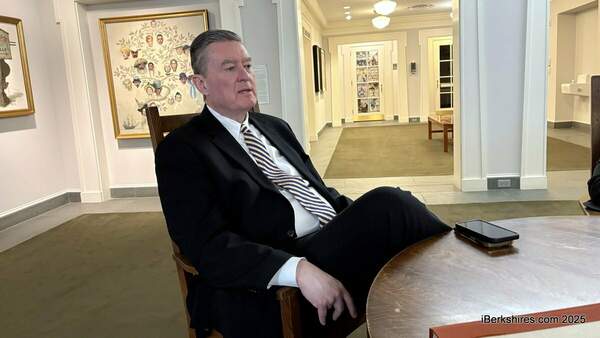Patrick Proposes Cuts, Level Funding to Cure Shortfall
|
Gov. Deval Patrick on Tuesday laid out proposals for cuts and spending limits to offset a decrease in tax revenues for fiscal 2013. |
BOSTON — Gov. Deval Patrick is calling for a combination of level-funding programs, targeted cuts, rainy day funds and by eliminating hundreds of planned jobs to close an estimated $540 million gap in the fiscal 2013 budget caused by slowing economic growth and lower-than-anticipated tax revenue collections
The administration revised the FY13 tax revenue estimate from $22.01 billion to $21.496 billion, a reduction of $515 million. Because $25 million of the tax revenue already collected this year is from tax settlements that are one-time in nature and already committed to certain one-time costs, the total shortfall in tax revenues available to support the budget is $540 million.
"The uncertainty of the fiscal cliff and the resulting slow down in growth, is the direct cause of our budget challenges," said Patrick in a statement after anounce the plan at the State House on Tuesday. "Congress and the president must come to terms on a solution so the private sector will continue to make the kind of investments that create jobs, grow state and federal tax revenue collections and contribute to a lasting economic recovery. Until then, just as we have throughout the course of this administration, we face these challenges together and take a balanced, purposeful approach to dealing with them."
To close the budget gap, Patrick is proposing budgetary reductions and other fiscal solutions, including the reallocation of savings from the commonwealth's borrowing and health-care costs, to help address the tax revenue shortfall. The plan does not include cuts to Chapter 70 education funding and, according to the administration, continues investments in education, innovation and infrastructure to grow jobs and attract private sector investment.
Among the fiscal policies that have been positively reviewed by the rating agencies are calls for solving no more than half of any mid-year tax revenue shortfall with rainy day funds or other one-time, non-recurring resources. Patrick's plan proposes that only half of the $540 million revenue shortfall be addressed with rainy day funds and other one-time resources. The other half will be solved with recurring budgetary solutions.
Summary of Budgetary Reductions and Solutions
• $225 million or about 1 percent in the aggregate in spending reductions through 9C cuts in Executive Branch agencies. After accounting for reduced federal revenue related to such reductions, the net amount of the budgetary savings from those cuts is $157 million.
• More than 700 of new positions that were originally planned and funded in FY13 are being eliminated and will not be filled, resulting in a savings of approximately $20 million. This will result in the total state work force having more than 6,000 fewer positions at the end of FY13 than it did before the recession.
• A number of new investments have been reduced or eliminated, including limiting new or restored funding.
• $200 million from the Rainy Day Fund, bringing the total draw to $550 million in FY13 – leaving a balance of $1.2 billion, one of the highest in the country.
• $25 million from a 1 percent reduction in the budgets of the Judiciary, Constitutional Officers and other non-executive departments.
• $98 million in additional federal revenues in support of safety net programs operated by the state on behalf low-income residents.
• $20 million from a total of $113 million in savings in state borrowing and health-care reform costs. The remainder of this funding will be used to offset some unavoidable deficiencies which must be funded this fiscal year.
• $20 million from a reduction in the amount of sales tax revenues that will automatically be transferred to the Massachusetts School Building Authority to support local school building costs.
• $11 million from certain reserve fund surpluses.
• $9 million from a 1 percent across the board reduction to unrestricted local aid. The governor has filed legislation that would ensure if lottery profits exceed the $1.026 billion amount currently budgeted in FY13, all of such excess proceeds be committed to increasing the amount of unrestricted local aid.
Tags: budget cuts, budget shortfall, fiscal 2013, state budget,
















